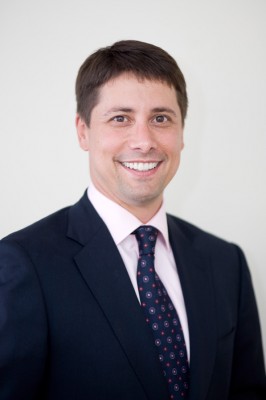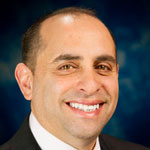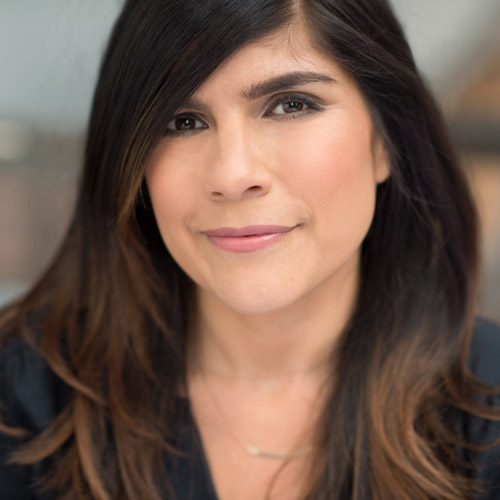
An entrepreneur, business pioneer, or someone who has built a company from the ground up might dream of being approached by the team from Palladium Equity Partners.
Palladium Equity Partners, LLC is an equity investment firm that specializes in providing capital to founder-owned, mid-sized companies. Its main investment strategy is to acquire companies by buying a controlling share and then grow the business in partnership with the owners, management teams, and industry leaders. For a company owner, that means money and expertise to help business grow. Although owners must hand over control to their new investment partners, they gain liquidity and a big cash payoff for years of hard work.
What makes Palladium different from other investment firms? It’s primarily scouting for opportunities among Hispanic-owned businesses and businesses that target the Hispanic demographic. “We don’t only invest in Hispanic companies, but it’s a special focus of ours,” says Luis Zaldivar, one of Palladium’s four managing directors. He’s been with Palladium for more than 10 years. Zaldivar got his first insights into Hispanic-owned enterprises as a youngster. His grandfather founded a Cuban restaurant in New York City called Victor’s Cafe. “Hispanics are forming businesses at a faster rate than non-Hispanics,” he says. “We see that as a significant opportunity.”
Hispanic entrepreneurs opened twice as many businesses than the national average in the 2000s, according to US census data. However a large percentage of those businesses stay small, with fewer than ten employees, according to a recent study by the Bureau of Business Research at the University of Texas. A major obstacle, according to the Texas study, is lack of management and leadership expertise.
Palladium seeks to address that issue when making investments. The firm has built a network of more than 1,000 executives throughout the country—many leaders from Fortune 1,000 companies—to help identify and evaluate investment opportunities. They’re typically tapped for the boards of acquired companies and contribute to their management. Equity investment firms like Palladium, as opposed to venture capital firms, typically avoid start-ups. They’re interested in firms that are ready for the sort of growth they can drive. “These aren’t early-stage companies,” Zaldivar says. “They’re typically mature businesses that need capital for growth and to provide liquidity for shareholders.”
Visit Palladium’s New York City office, and you’re sure to catch a few conversations in Spanish. The firm’s investment team boasts at least nine different Latin American nationalities, and more than two-thirds of the professionals at Palladium speak Spanish. They attend trade shows that draw Latinos and volunteer with cultural and charitable organizations such as Ballet Hispanico and the Hispanic Scholarship Fund.
The Palladium team has been able to build relationships with Hispanic business leaders, and they have their ears open to what’s going on in the community. But that’s only a small part of why the firm looks to invest in Hispanic companies. As Zaldivar notes, it’s a smart business focus. Hispanic buying power now exceeds one trillion dollars, says the Selig Center for Economic Growth.
Since it was founded in 1997, Palladium has invested more than $1 billion of capital in more than 20 platform investments and more than 50 add-on acquisitions. The firm now manages more than $2.5 billion in assets. It focuses on companies that have $10–75 million in earnings before interest, taxes, depreciation, and amortization—especially those in the business services, consumer, health-care, food, industrial, manufacturing, energy, media, and financial industries.
“We’re the first firm of our size, with our expertise, that has a focus on the Hispanic community.”
To grow a platform company, Palladium sometimes also buys smaller businesses in the same field (called add-ons) and makes them part of the larger enterprise. After several years of growth, a platform company is sold to return value to the investors. It could go to a larger corporation, another private equity firm, or Palladium could do an initial public offering and make it a publicly traded company.
Palladium’s acquisition of Teasdale Foods, Inc., a California company founded in the 1930s, illustrates the process. The company is the largest producer and marketer of canned hominy and beans in the western United States, and many of its brands are targeted to Hispanic consumers. Palladium purchased a controlling share of the fourth-generation, family-owned enterprise in September 2011. The firm brought in a new CEO and set up a board of directors, recruiting some retired food company execs to fill the slots. A year later Palladium acquired Hoopeston Foods Inc., a Midwestern company that produces various bean products. Three months later, the firm also acquired Zateca Foods, a company that processes precooked dehydrated beans. Both Hoopeston and Zateca became Teasdale add-ons. In October of 2014, Palladium announced the sale of Teasdale for approximately $200 million.
Why does Palladium focus on founder-owned businesses? “There are a lot of them in the United States, so there’s a lot of opportunity,” Zaldivar says. “Many of them are looking for private equity. Maybe they have limited resources. Maybe they don’t have the expertise they need to take their company to the next level. Perhaps an owner wants to step back but doesn’t have a next generation to take over. They may see an opportunity ahead and realize they need a partner.” The reasons are many and unique to the individual that is selling his or her business.
“Our goal is always to return capital to the investors,” Zaldivar says. What often happens with Hispanic-owned businesses is that owners are reluctant to move to the next level because they have limited knowledge or feel they have limited access to markets and capital. A firm like Palladium challenges that thinking, providing both the capital and expertise to move up. “Everyone benefits from a healthy capital market,” Zaldivar says. “We’re the first firm of our size, with our expertise, that has a focus on the Hispanic community. That’s something Hispanic entrepreneurs can see as positive.”
A Través de los Años
Palladium’s milestone achievements1997: Palladium Equity Partners, LLC is founded.
2004: Luis Zaldivar, a Harvard Business School grad, joins the firm as a vice president. He serves as a director with several companies in which the firm has invested, including Teasdale Quality Foods, ABRA Auto Body and Glass, and Hy Cite Enterprises.
2005: Palladium closes its third fund with $775 million in investment capital.
2010: Palladium announces the acquisition of Jordan Health Services, one of the largest home health-care providers in Texas.
2011: Palladium announces its acquisition of Teasdale Quality Foods, Inc., the largest producer of canned hominy and beans in the western United States.
Jordan Health Services combines with another Texas health-care provider, CIMA, which operates four hospices in the state.
2012: Palladium announces the acquisitions of Hoopeston Foods, Inc.; Zateca Foods, LLC; and Greeley Trading Company. The food companies, all known for their bean products, become Teasdale add-ons.
2014: Palladium closes its fourth fund. The fund generated so much interest from investors that the firm increased the initial $1 billion cap, closing with $1.14 billion in capital.
Oct. 1, 2014: Palladium announces an investment in Pronto Insurance, a leading provider of nonstandard auto insurance focused on the rapidly growing Hispanic market in Texas.
Oct. 29, 2014: Teasdale sells for roughly $200 million to Snow Phipps Group LLC.

